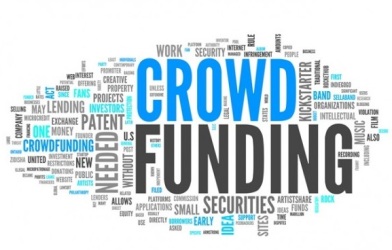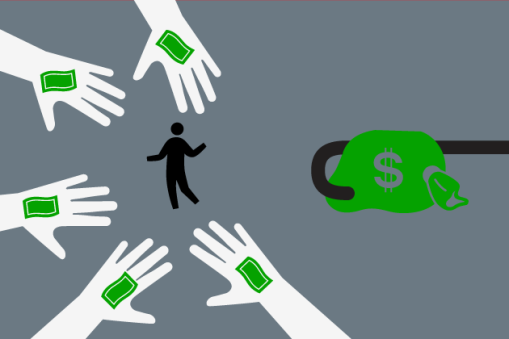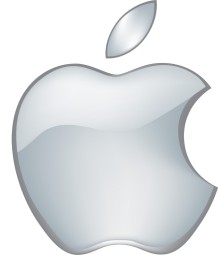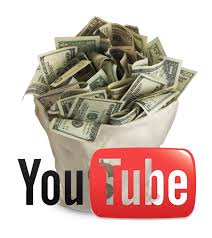Some people may or may not be aware of what crowdfunding actually is, in short it is the set of a project that asks for people to help fund in advance in exchange for some kind of reward. In music it can be the funding to record a new album in exchange for a pre order of release or more.This process is essentially cutting out the middle man of the record label and doing business straight between fan and artist, and this is an opportunity for fans to get closer to the artist, to actually feel like they are a part of the process.
Over the last few years this has been a process that has grown more popular, even with established acts like Ash joining in and having a campaign through PledgeMusic. What makes this approach different to the average pre-order option? you are still putting money up front and making a commitment to pay for something that is yet released. But the difference being you are committing to a project that may or may not happen depending if enough funds can be raised.
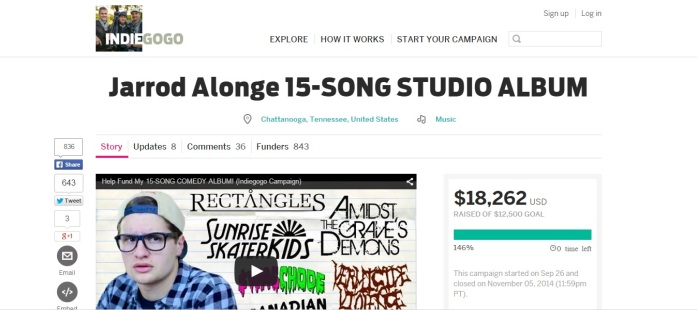
This does give the opportunity for artists to do some unique things with fans, of course there are the standard reward systems, a copy of the release physically or digitally, t-shirt bundles, gig bundles perhaps, but some campaigners have decided to do things like have option to party with the fans, have lunches, fans being in videos, have skype conversations. Jarrod Alonge even set up the option to literally walk a mile in someone elses shoes which at least 2 people out of 30 claimed for $75 towards his album recording fees. A bit silly bit a silly act that made him $150 none the less.
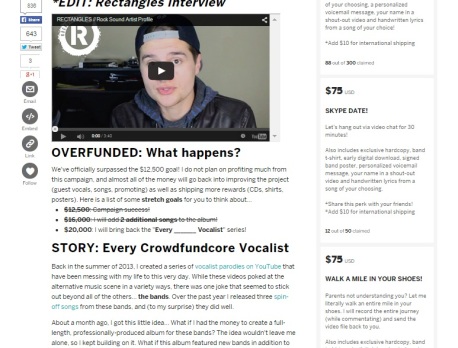
This all sounds rather fun for artists and even fan, but where does this leave labels? The prospect of a band that can fund an album without having to give up a percentage per sold item to someone else is a definite incentive for any artist to go straight to crowdfunding instead of a label. You might argue that what about all the other stuff that labels can provide? All the P.R and marketing to maximise sales during release, the connections with studios and producers. Even the most DIY acts may find such things useful.
Well even some of the websites that deal with crowdfunding can help here, PledgeMusic is one of these. A crowdfunding website that is purely designed for music fans to help fund an artists release, they don’t take a cut in royalties but what they do take is a one off percentage cut from the funds made from the pledge campaign. Once the campaign has finished PledgeMusic has people that can advise on what to do next, what producers to use and more, essentially doing some of what a label can do without being a label, and what does happen is that the artist keeps all creative control, no restrictions from the label.

What can labels really learn from this? for the moment crowdfunding doesn’t look the threaten the majors like Warner or Universal but given time, bigger acts could just sense that they don’t need the big guys anymore. Imagine if Ed Sheeran gave the finger to Atlantic and decided to fund his next release from crowdfunding. Being one of the biggest acts in music at the moment he is definitely established enough to have a large backing from fans, and with a few releases under his belt already he would already have a few producers he could go to. Essentially he could could go completely DIY and still be very successful now that he has already made a name for himself.
Of course the main idea for artists to do this is pure creative control and a way to escape having the labels take away some royalties, though I can see a way that Labels can join in and capitalise from the use of this platform. Replacing the old way of recording advances and just having an album crowdfunded instead, potentially making a profit from the campaign, sell special “crowdfunded” editions as a unique selling point to hook the buyer amongst other things. Of course this is all speculation of “it coulds” and “it mights” but there is definitely a way for labels to adapt to this model.
It would be a great way for labels to take less of a risk on the less established artists on their roster. In the current way of doing things if the album is a flop and doesn’t really sell after it’s release? then they have failed and lost money, though if they get it crowdfunded, tough, the label has already take the customers money to fund the recording and hasn’t lost any of their own money in the process.
Taken from a blog post by B’as Kruijssen on the subject, he also agrees that labels should adapt, stating :
“I suggest another evolution for record labels. Label managers: feel free to embrace a crowdfunder instead of fearing it. Try keeping a close eye on crowdfunding sites; high quality music is all around. These bands and artists could be new signings in the future.. If you look at it that way, you can even say ‘artist happy, fan happy, crowd funder happy… and Record label happy’.
I see it as a great opportunity to take music business to a next level: if more good music is discovered, more people who love it will be touched by it. Which leads to more people wanting to Skype chat with a band, buy a signed guitar or pre order an album. Happy faces all around!”
Future labels should really take note, maybe the arrogance of the older labels will stare at it and say it won’t take off like they do with all new things “napster won’t change things” “Streaming won’t change anything”. But they would be fools not to look into this as an option.
What do you guys think? Can labels benefit from entering the world of crowfunding? or will crowdfunding be better off without labels interfering?
The Bas Kruijssen post can be found here
